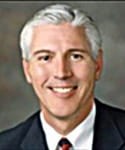A Vacuum of Values = Equals Muslim Rage
-
Everett Piper Everett Piper's Blog
- Updated Jan 05, 2011
One of the things I
learned long ago in my career is the principle of the vacuum. As it is in
physics, so it is with human nature. Nothing will always be filled with
something.
I thought of this
principle recently as I was reading an editorial written by Dinesh D'Souza, a
Research Scholar at Stanford University, who contends that the best explanation
for the Muslim rage is not that the West is too Christian but that it is not
Christian enough.
"Islamic radicals…make their case against
America" says D' Souza, "not on the grounds that [we] are Christian, but on the
grounds that [we] have abandoned Christianity. He quotes the influential
Pakistani scholar, Khurshid Ahmad, leader of the Islamic Assembly of Students:
‘Had Western culture been based on Christianity, on morality, on faith, the
language and modus operandi of the… conflict would have been different. But
that is not the case. The choice is between the divine principle and the
secular materialistic culture.'"
D'Souza concludes: "Thus
the popular notion that the war against terrorism is a battle between two
opposed forms of religious fundamentalism is false… secularism, not
Christianity is responsible for producing a blowback of Muslim rage."
Now you may disagree
with some of the assumptions implicit in D'Souza's argument but think for a
moment of the principle of the vacuum - that unavoidable law that you know and
experience on a day by day basis - that rule of replacement that says
nothingness always draws something into its void. Think about Muslim animus and
Islamic hatred being drawn irresistibly into your own backyard by a vacuum; a
vacuum of values; a vacuum of virtue. Then ask yourself this question: Does the
emptiness of secularism give you more comfort than the fullness of faith.



















